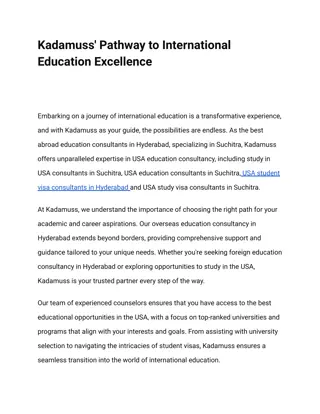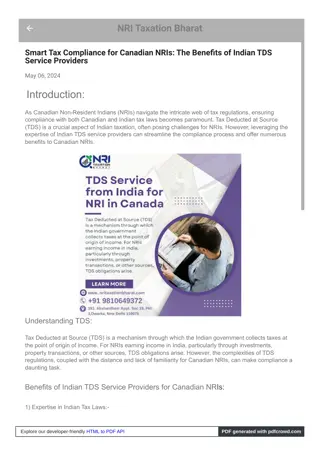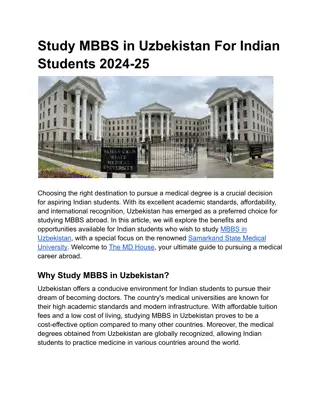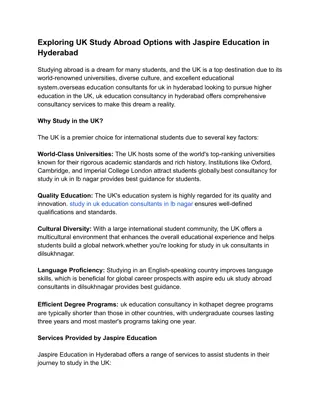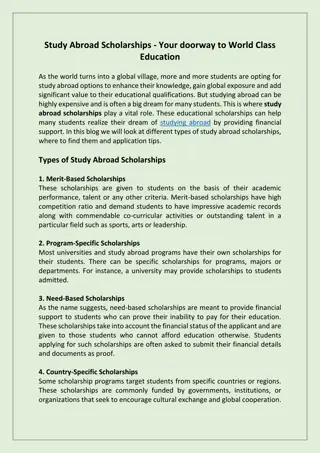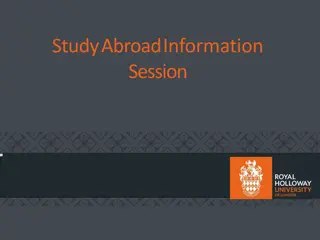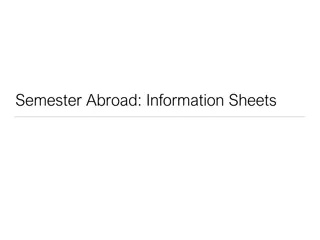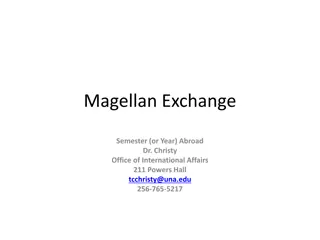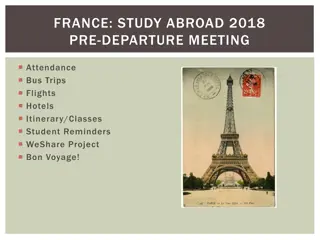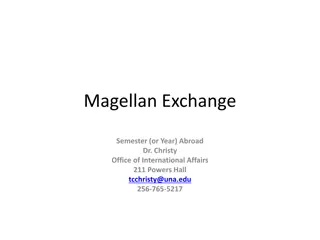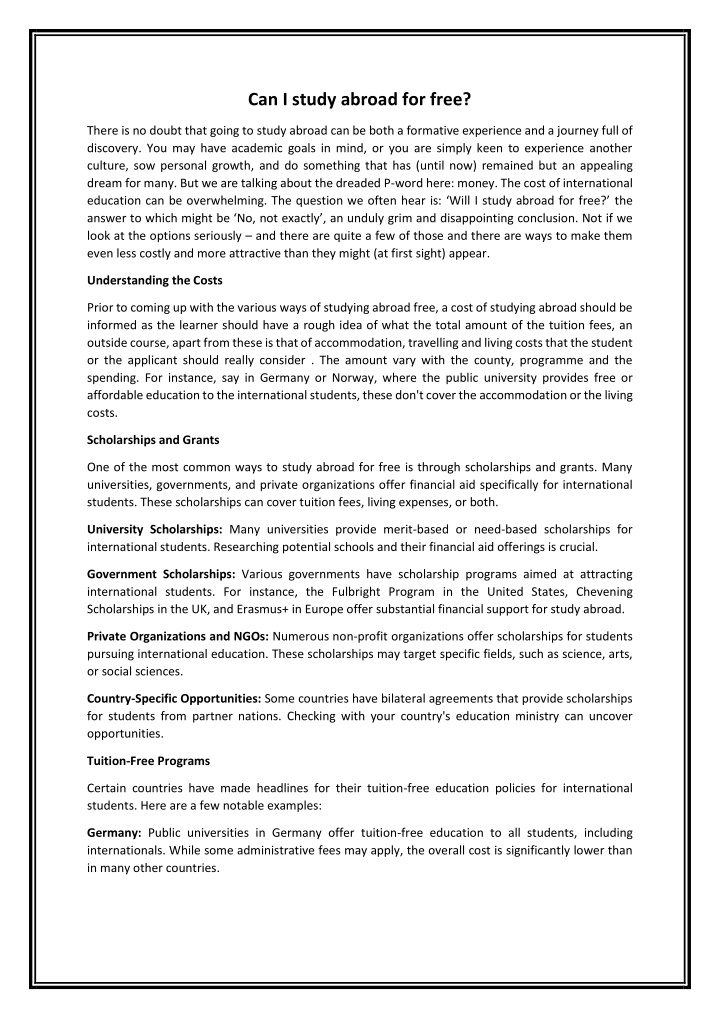
Can I study abroad for free?
There is no doubt that going to study abroad can be both a formative experience and a journey full of discovery. You may have academic goals in mind, or you are simply keen to experience another culture, sow personal growth, and do something that has
Download Presentation

Please find below an Image/Link to download the presentation.
The content on the website is provided AS IS for your information and personal use only. It may not be sold, licensed, or shared on other websites without obtaining consent from the author. If you encounter any issues during the download, it is possible that the publisher has removed the file from their server.
You are allowed to download the files provided on this website for personal or commercial use, subject to the condition that they are used lawfully. All files are the property of their respective owners.
The content on the website is provided AS IS for your information and personal use only. It may not be sold, licensed, or shared on other websites without obtaining consent from the author.
E N D
Presentation Transcript
Can I study abroad for free? There is no doubt that going to study abroad can be both a formative experience and a journey full of discovery. You may have academic goals in mind, or you are simply keen to experience another culture, sow personal growth, and do something that has (until now) remained but an appealing dream for many. But we are talking about the dreaded P-word here: money. The cost of international education can be overwhelming. The question we often hear is: Will I study abroad for free? the answer to which might be No, not exactly , an unduly grim and disappointing conclusion. Not if we look at the options seriously and there are quite a few of those and there are ways to make them even less costly and more attractive than they might (at first sight) appear. Understanding the Costs Prior to coming up with the various ways of studying abroad free, a cost of studying abroad should be informed as the learner should have a rough idea of what the total amount of the tuition fees, an outside course, apart from these is that of accommodation, travelling and living costs that the student or the applicant should really consider . The amount vary with the county, programme and the spending. For instance, say in Germany or Norway, where the public university provides free or affordable education to the international students, these don't cover the accommodation or the living costs. Scholarships and Grants One of the most common ways to study abroad for free is through scholarships and grants. Many universities, governments, and private organizations offer financial aid specifically for international students. These scholarships can cover tuition fees, living expenses, or both. University Scholarships: Many universities provide merit-based or need-based scholarships for international students. Researching potential schools and their financial aid offerings is crucial. Government Scholarships: Various governments have scholarship programs aimed at attracting international students. For instance, the Fulbright Program in the United States, Chevening Scholarships in the UK, and Erasmus+ in Europe offer substantial financial support for study abroad. Private Organizations and NGOs: Numerous non-profit organizations offer scholarships for students pursuing international education. These scholarships may target specific fields, such as science, arts, or social sciences. Country-Specific Opportunities: Some countries have bilateral agreements that provide scholarships for students from partner nations. Checking with your country's education ministry can uncover opportunities. Tuition-Free Programs Certain countries have made headlines for their tuition-free education policies for international students. Here are a few notable examples: Germany: Public universities in Germany offer tuition-free education to all students, including internationals. While some administrative fees may apply, the overall cost is significantly lower than in many other countries.
Norway: Similar to Germany, public universities in Norway do not charge tuition fees, regardless of the student s nationality. However, the cost of living in Norway can be high, so students must budget accordingly. Finland: While Finland introduced tuition fees for non-EU students, many universities offer scholarships that can cover tuition costs entirely. Austria: Tuition fees at public universities in Austria are relatively low, and students from the EU/EEA pay even less. There are also numerous scholarships available for international students. Exchange Programs Participating in a student exchange program is another way to study abroad at little or no cost. Many universities have partnerships that allow students to study abroad for a semester or year while paying their home institution s tuition fees. Erasmus+: This EU program supports students studying in different European countries. It provides grants to help cover travel and living expenses, making it a popular choice for students in Europe. Bilateral Exchange Agreements: Many universities have specific agreements with institutions in other countries. These programs often allow students to study abroad without additional tuition costs. Work-Study Options Othern is work-study programme . work-study is another method for in most of the countries international students allow to work part-time to support their living expenditure during study. On-Campus Employment: Many universities offer jobs for students, which can provide a steady income and ease the financial burden. Internships: Some academic programs include internships, which can be paid and provide invaluable work experience. Work Permits: Some countries offer work permits for international students, allowing them to take up part-time employment outside their university. Crowdfunding and Sponsorship In today's digital age, crowdfunding has become a viable option for financing education abroad. Students can create campaigns on platforms like GoFundMe or Kickstarter to raise funds from friends, family, and even strangers who are interested in supporting education. Additionally, some organizations and businesses may sponsor students in exchange for certain commitments, such as working for the company post-graduation. Cost-Saving Strategies While scholarships and programs can alleviate costs, adopting certain strategies can further help reduce expenses: Choose Affordable Destinations: Some countries have a lower cost of living, making them more feasible for students on a budget. Live Like a Local: Opt for shared accommodations, cook meals at home, and use public transportation to save money.
Budget Wisely: Keep track of expenses and create a budget to avoid overspending. Seek Local Discounts: Many cities offer discounts for students on transportation, dining, and entertainment. Conclusion However, studying abroad does not mean free, but there are many strategies that can be found that really bring cost down significantly. In order to complete the above information, students can look for scholarship schemes, free tuition, exchange programmes, work-study placements, strategies of budgeting / thus, the student can evolve feasible means to study overseas for a very reasonable price without accumulating a conspicuous debt. Lastly, education overseas is an investment that is worth making because it yields better employability and improved individuals. Studying abroad may sound like just an illusion, but when done right it is the world coming to your doorsteps as a classroom. Also Read: Study Abroad University Cost of Studying In UK for Indian Students Study in UK for Indian students







